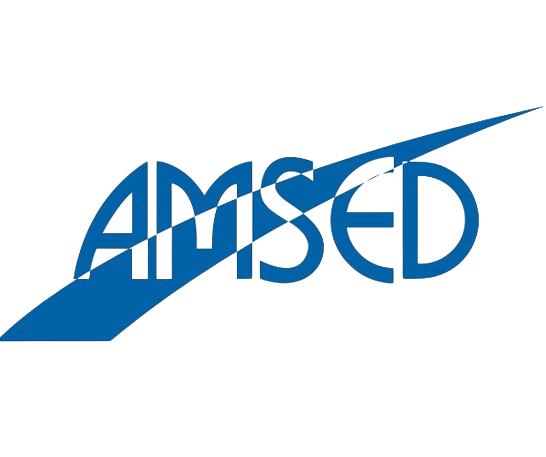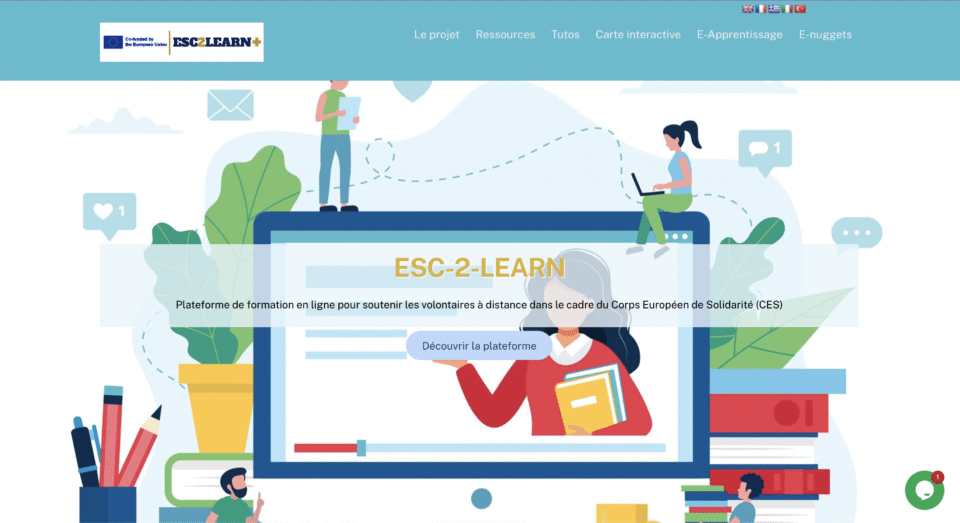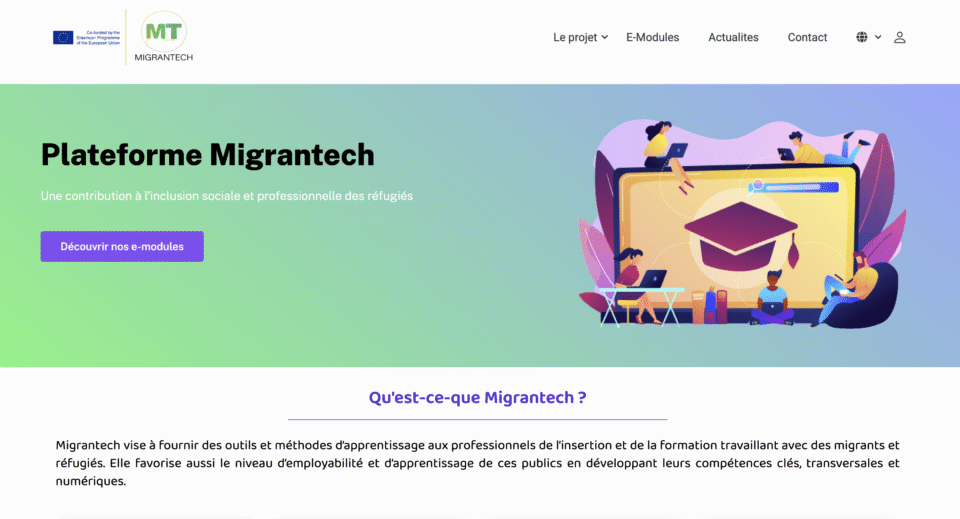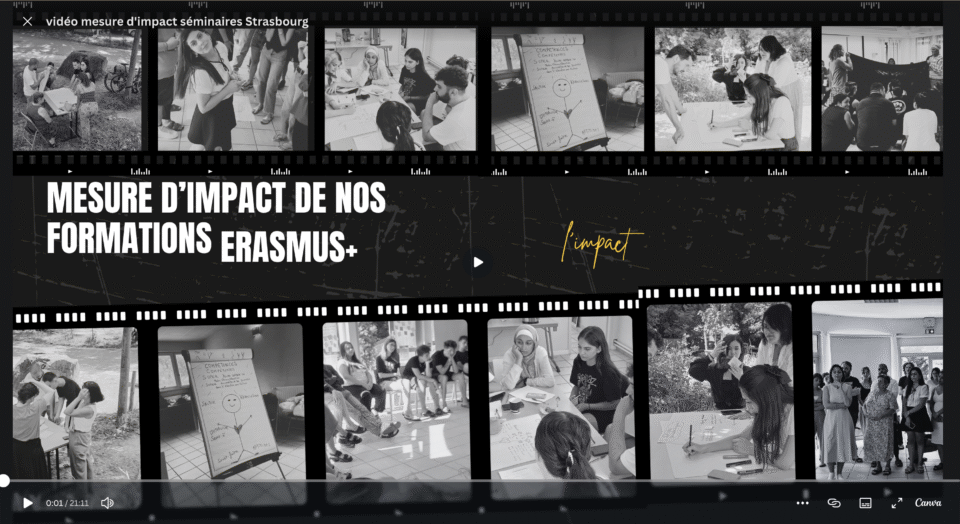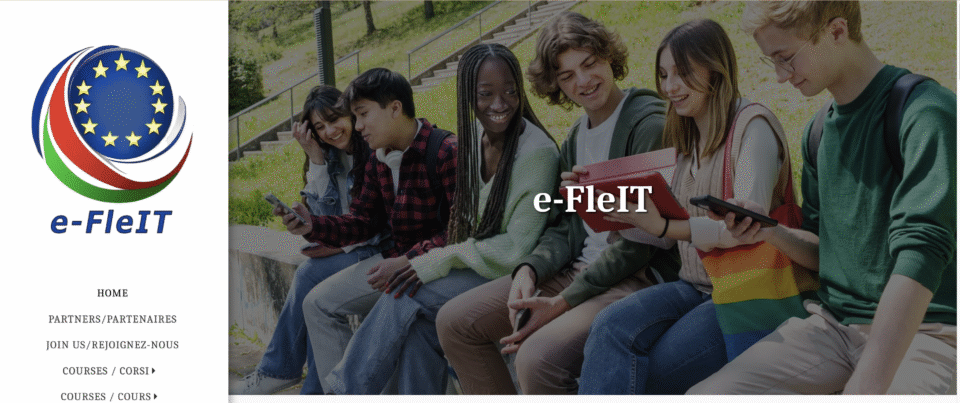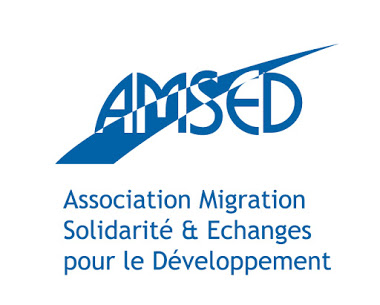E-Learning
With their extensive experience in social innovation, AMSED and its European and international network identify the societal needs of today and tomorrow and propose innovative responses to these challenges. These solutions, tailored to the network’s target audience, are developed collectively by young people, citizens, associations, local authorities, public institutions, private actors, and partners.
Our approach is based on our members’ experiences, observations, and conclusions. We also examine these past experiences, their effectiveness, relevance, and sustainability, while conducting ongoing evaluations, surveys, and impact assessments of the activities implemented.
We implement various social innovation projects to facilitate positive engagement by less qualified or disadvantaged groups in these transitions:
Creation of e-learning platforms and applications
Transnational training courses for youth workers and social workers
Exchange of best practices among institutional actors and civil society at the local and international levels
AMSED therefore strives to promote and support initiatives with high social added value and is committed to stimulating creativity and innovation in order to meet the social and societal challenges of tomorrow by mobilizing its dynamic forces.
In collaboration with young people, youth organizations, and other stakeholders, AMSED encourages the emergence of innovative solutions and contributes to their implementation.
Here are some concrete examples of actions taken:
ESC-2-LEARN
Developed as part of the Erasmus+ program in partnership with Greek, Italian, and Turkish associations, this multilingual online training platform aims to support young people involved in the European Solidarity Corps (ESC) and strengthen their personal, professional, and civic skills.
40 online modules, accessible to all, aim to address the challenges faced by young volunteers (lack of initiative, limited specific skills, conflict management, volunteering, etc.) by covering various topics related to volunteering. The platform also offers e-learning nuggets, which are short interactive videos on these topics, and an interactive map of volunteering projects. These features are also available on the ESC2Learn+ project’s mobile app.
Migrantech
Developed by AMSED and its European partners (Belgium, Portugal, Turkey), this digital platform aims to strengthen the employability and socio-professional integration of migrants and refugees, while providing learning tools and methods to integration and training professionals working with these groups.
Available in five languages, this platform offers 40 interactive e-modules on five themes: well-being and mental health, professional communication, digital skills, transferable skills, job search, and entrepreneurship.
Recognized as a “best practice” in Europe by the European Commission, Migrantech offers tailored support through trained e-tutors, thereby contributing to social cohesion, employability, and the fight against discrimination.
The goal of AMSED, its network members, and our local partners is to support our audience in the digital and environmental transitions we have identified, through projects and in our daily practices and work in the Eurometropolis of Strasbourg and the EuroMed area.
Examples of projects supporting the digital transition:
- Using AI in community or youth work
- Fake news and youth participation in democratic life
- Integrate the e-FleIT e-fleit.com learning platform into our activities
Examples of projects supporting the environmental transition:
- Low tech and reduced consumption
- Circular economy and public acceptance of the Zero Waste approach
- Organisation of Repair Cafés with an environmental and socioeconomic dimension
By implementing various activities and projects, the aim is, on the one hand, to contribute to societal challenges related to environmental protection, sustainability, and climate goals, and, on the other hand, to support digital autonomy. AMSED thus provides its beneficiaries with the necessary tools to:
- Understand digital culture and its implications for society
- Understand the risks and opportunities associated with digital technologies
- Develop their digital skills and use technology effectively
- Actively participate in online life and engage in positive interactions by finding useful, inclusive, and sustainable solutions.


Financé par l’Union européenne. Les vues et opinions exprimées n’engagent que leur(s) auteur(s) et ne reflètent pas nécessairement celles de l’Union européenne. Ni l’Union européenne ni l’autorité qui accorde la subvention ne peuvent en être tenues pour responsables.
